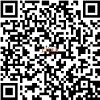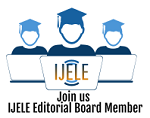(2) Wen Heng Fu
*corresponding author
AbstractSome schools in certain regions of Indonesia are currently really dangerous because they are in the ring area of the fire. In the region, there are also schools located in disaster-prone areas. This research aims to describe modern education for sustainable development by building the online school as disaster solution in the modern era. This research is descriptive qualitative research using a social history approach. The design research method was carried out in four phases: data collection, data display, conclusions, and data condensation. The result of this research is the government should be building an online school as a disaster solution for the generation in the modern era to education for sustainable development.
KeywordsEducation for sustainable development; Modern Education; Online School as disaster solution
|
DOIhttps://doi.org/10.31763/ijele.v1i1.33 |
Article metrics10.31763/ijele.v1i1.33 Abstract views : 5089 | PDF views : 1868 |
Cite |
Full Text Download Download
|
References
Wikipedia, “Sustainable Development,†2018. .
BNPB, “Badan Nasional Penanggulangan Bencana: Data Informasi Bencana Indonesia,†2018. .
Sky News, “Ring of fire: Why Indonesia has so many earthquakes,†Sky News. .
Matthew B. Miles, A. Michael Huberman, and J. Saldaña, “Qualitative Data Analysis: A Methods Sourcebook,†Third Edit., United States of America: Sage Publications, 2014.
R. Pring, “Philosophy of Education: Aims, Theory, Common Sense and Research,†New York. Continuum, 2004.
C. P. Lim and M. S. Khine, Globalisation, Comparative Education and Policy Research: Comparative Information Technology (Languages, Societies and the Internet). Australia: Springer, 2009.
C. L. Daugherty and C. Walker, “From Evolution to Revolution: Updates to Effective E-Learning Model Help Facilitate Better Learning,†J. Res. Innov. Teach., vol. 3, no. 1, pp. 52–60, 2010.
D. Tao, L. He, and Y. He, Research Series on the Chinese Dream and China’s Development Path: Cultural Studies in Modern China. Jinan, Shandong: Springer, 2017.
Z. Nuryana and Suyadi, “Development Based on Hidden Curriculum at the Disaster-Prone School,†J. Educ. Learn., vol. 13, no. 2, pp. 219–225, 2019.
N. Calder and K. Larkin, Mathematics Education in the Digital Era Using Mobile Technologies in the Teaching and Learning of Mathematics, Volume 12. Cham, Switzerland: Springer, 2018.
Mette Arleth, GIS for Sustainable Development. London: CRC Press, 2006.
B. Wong and S. Hairon, School Leadership and Educational Change in Singapore. Singapore: Springer, 2019.
L. J. Cronbach, “Evaluation in Education and Human Services,†First Edit., G. F. Madaus, C. Hill, and Daniel L. Stufflebeam, Eds. New York: Kluwer Academic Publishers, 2002.
陈å°æ°‘, “教育å¦åŽŸç†å¯¹æ•™è‚²æŠ€æœ¯å¦çš„å¯ç¤º,†China Acad. J. Electron. Publ. House, 2011.
J. M. Spector and J. Yang, Educational Technology: A Primer for the 21st Century. Singapore: Springer, 2019.
R. A. Ellis, Spaces of Teaching and Learning Integrating Perspectives on Research. Australia: Springer, 2018.
S. Ashdown, “The Influence of Social Worlds on Engaging Ideas Shelley Ashdown,†J. Res. Innov. Teach., vol. 3, no. 1, pp. 7–23, 2010.
L. Bosher and Ksenia Chmutina, Disaster Risk Reduction for the Built Environment. Chennai, India: Wiley Blackwell, 2017.
D. Fodeman and M. Monroe, Safe Practices for Life Online, SECOND EDI. Washington DC: the International Society for Technology in Education, 2012.
P. Shrimal and M. P. Sharma, “UNESCO ’s Four Pillars of Education, Implications for Schools,†Educ. India J. A Q. Ref. J. Dialogues Educ., vol. 1, no. August 2012, pp. 1–10, 2012.
Refbacks
- There are currently no refbacks.
Copyright (c) 2019 Satrianawati Satrianawati, Wen Heng Fu

This work is licensed under a Creative Commons Attribution-ShareAlike 4.0 International License.

International Journal of Education and Learning
ISSNÂ 2684-9240
Published by Association for Scientific Computing Electronics and Engineering (ASCEE)
W : http://pubs2.ascee.org/index.php/ijele
E : zalik@ascee.org

This work is licensed under a Creative Commons Attribution-ShareAlike 4.0 International License.





















